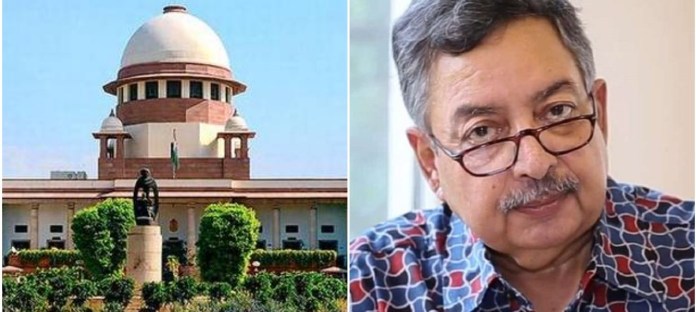“Every Journalist Entitled To Protection”: Supreme Court On Sedition
Journalist Vinod Dua was charged with sedition in Himachal Pradesh over his criticism of the central government’s handling of Covid, based on a complaint by a BJP
New Delhi: The Supreme Court today cancelled a sedition case against journalist Vinod Dua and said a 1962 order protects every journalist from such charges.
Vinod Dua was charged with sedition in Himachal Pradesh over his criticism of the central government’s handling of Covid, based on a complaint by a BJP leader. He was accused in an FIR of spreading fake news, causing public nuisance, printing defamatory material, and making statements amounting to public mischief.
The senior journalist went to the Supreme Court against the FIR and sought “exemplary damages for harassment”.
While cancelling the case, the Supreme Court rejected Mr Dua’s request that no FIR be registered against any journalist with 10 years’ experience unless cleared by a panel headed by a High Court judge.
This would amount to encroaching on the domain of the legislature, said Justices UU Lalit and Vineet Saran.
But the Supreme Court, significantly, cited a past judgment to say every journalist is protected from such charges.
“Every journalist will be entitled to the protection under the Kedar Nath Singh judgment on sedition,” said the judges.
The 1962 Supreme Court verdict said “mere strong words used to express disapprobation of the measures of the government with a view to their improvement or alteration by lawful means” is not sedition.
A BJP leader had complained against Mr Dua’s comments against the Centre and Prime Minister Narendra Modi linked to the Covid crisis and the deadly second surge, which left the health infrastructure struggling and raised questions about the government’s policies. The UP Police registered an FIR against The Scroll Executive Editor Supriya Sharma in relation to a report titled “In Varanasi village adopted by Prime Minister Modi, people went hungry during lockdown“.

